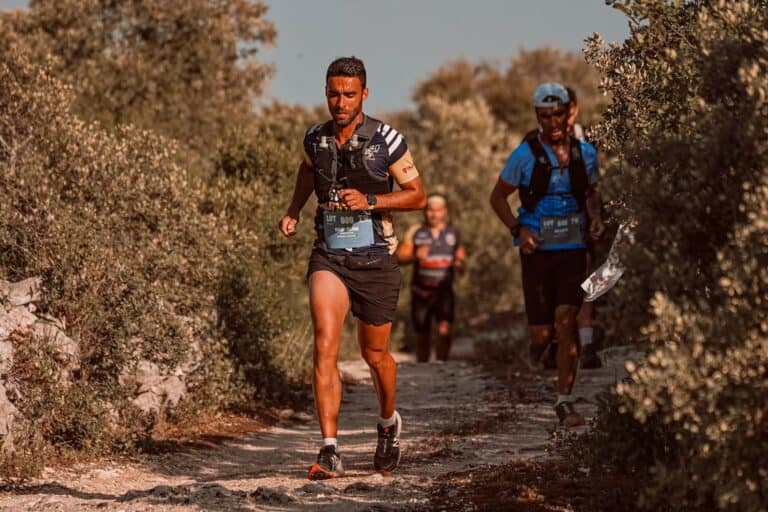In recent years, the link between trail running and longevity has garnered significant attention in the world of fitness and health. Trail running, a form of running that takes place on natural, unpaved terrain, offers a unique set of challenges and benefits that contribute to a longer, healthier life. This article explores the profound impact that trail running can have on one’s overall well-being, focusing on its direct influence on longevity.
Health Benefits for a Longer Life
Cardiovascular Fitness and Longevity
One of the most notable benefits of trail running is its positive impact on cardiovascular health. Engaging in regular cardiovascular exercise has been proven to lower the risk of cardiovascular diseases, a leading cause of mortality worldwide. Trail runners often experience enhanced cardiovascular fitness due to the varied terrain they navigate. The uneven surfaces and elevation changes demand increased effort, leading to improved heart health and a longer lifespan.

Lower Risks of Chronic Conditions
Trail running also addresses several risk factors associated with chronic conditions. Studies have shown that individuals who engage in regular physical activity, such as trail running, are less likely to develop high blood pressure, a condition linked to numerous cardiovascular diseases. By actively participating in this sport, individuals can significantly reduce their chances of experiencing such health complications.
Enhanced Mental Well-being
Longevity is not solely dependent on physical health; mental well-being plays a crucial role as well. Trail running offers a unique combination of natural surroundings, physical exertion, and solitude, which can contribute to reduced stress levels, improved mood, and a heightened sense of well-being. These mental health benefits, in turn, contribute to an overall healthier and more fulfilling life.
Promoting Longevity through Running
Building Endurance for a Longer Life
Trail running, particularly in the form of ultra-running, challenges individuals to push their limits and build remarkable endurance. This enhanced endurance is not only beneficial in the context of racing but also in everyday life. Endurance performance has been linked to increased longevity, as it enables individuals to maintain higher levels of physical activity throughout their lives.
Improved Lower Limb Strength
Trail running requires a level of lower limb strength that is unique to this sport. The uneven terrain demands stability and strength in the legs, which translates to a reduced risk of lower limb injuries in the long run. Strong lower limbs contribute to better mobility and balance, factors that become increasingly important with age.

Trail Running and Longevity: Overcoming Challenges
Addressing Running Related Injuries
While trail running offers numerous health benefits, it is not without its risks. The unpredictable terrain can lead to overuse injuries, particularly in areas like the Achilles tendon and lower limbs. However, with proper training techniques, appropriate footwear, and cross-training, many of these injuries can be mitigated, allowing individuals to continue enjoying the benefits of trail running well into their later years.
Finding Motivation for Aging Runners
As individuals age, finding the motivation to engage in regular physical activity can be a challenge. Trail running, with its ever-changing scenery and sense of adventure, provides a unique source of motivation. The camaraderie among fellow trail runners and the sense of accomplishment after conquering a challenging trail can serve as powerful incentives to stay active and maintain a higher level of fitness.
Final Thoughts: Embracing a Long, Active Life
Trail running and longevity are intrinsically linked through the multitude of health benefits it provides. From improved cardiovascular fitness to enhanced mental well-being, this form of running offers a holistic approach to a longer, healthier life. By addressing and mitigating potential risks such as running-related injuries, individuals can safely engage in this exhilarating sport, reaping the rewards for years to come. Embracing trail running is not only a step towards a longer life but also a fulfilling and vibrant one.
- Trail Running And Ankle Strength
- Trail Running And Camping
- Trail Running And Confidence
- Trail Running And Creativity
- Trail Running And Ecotherapy
- Trail Running And Longevity
- Trail Running And Mental Health
- Trail Running And Sun Protection Tips
- Trail Running And Time Efficiency
- Trail Running And Wildlife
- Trail Running At Night
- Trail Running Clothing
- Trail Running Etiquette Dos And Donts
- Trail Running Etiquette With Dogs
- Trail Running For Charity
- Trail Running For Families
- Trail Running For Rehabilitation After Injury
- Trail Running For Stress Relief
- Trail Running For Weight Loss
- Trail Running Gear For Beginners
- Trail Running In Different Altitudes
- Trail Running In Different Weather Conditions
- Trail Running In Remote Locations
- Trail Running On A Budget
- Trail Running Photography
- Trail Running Recovery Techniques
- Trail Running Safety Tips For Beginners
- Trail Running Snacks
- Trail Running Techniques To Boost Your Pace
- Trail Running Tips
- Trail Running With Dogs
- Trail Running With Kids
- Trail Running With Physical Disabilities
- Is Trail Running A Good Workout
- Is Trail Running An Extreme Sport Unraveling The Truth
- Is Trail Running Bad For Your Knees
- Is Trail Running Better Than Road Running
- Is Trail Running Good For Dogs
- Is Trail Running Good For Marathon Training
- Is Trail Running The Same As Cross Country
